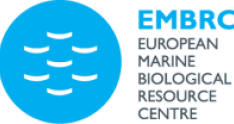Interuniversity Institute for Marine Sciences
Overview
The Interuniversity Institute for Marine Sciences (IUI) evolved from the Eilat H. Steinitz Marine Biology Laboratory, which was established by the Hebrew University of Jerusalem in 1968. A decade of intensive activities in the Red Sea took place, during which pioneering surveys and research in all marine sciences disciplines were performed in the eastern Sinai shores and related deep sea. In 1984, the Israel Council for Higher Education established the IUI as a national facility, shared by all universities in the country.
The IUI is the only interuniversity teaching and research facility in Israel and provides Israeli and foreign universities with research and teaching capabilities in all fields of marine science. The coral reefs and the open waters adjacent to the IUI are ecologically unique ecosystems of outstanding importance. The IUI has strong expertise in studying corals, fish, zooplankton, phytoplankton and bacteria as well as long-term monitoring of marine ecosystems and management of large databases. Research activities at the IUI span the whole spectrum of marine sciences, including ecology, chemical, physical and biological oceanography, microbiology, plankton biology and ecology, ichthyology, invertebrate and vertebrate biology, neurobiology, molecular biology and marine biogeochemistry.
Main Services
Provision of biological resources and culture collections
- Two temperature-controlled rooms for cultures of bacteria and plankton.
- Temperature and illumination controlled incubators for culturing bacteria and micro-algea.
- An outdoor system for growing organisms (e.g., corals, sea urchins, molluscs, algae) in flow-through aquaria under controled (manipulated) pH and temperature conditions.
Access to ecosystems
- Research vessel (16 m) fully equipped for hydrographic, biological, and geological studies, including:
- CTD with oxygen, pH, light, fluorescence sensors
- Rosette with 11 Niskin bottles (10 liters)
- MOCNESS (multiple opening closing net system (100, 300, 800 µm mesh nets)
- Vertical and horizontal plankton nets (various mesh sizes)
- Multi-corer for sediment sampling
- Grab for sediment sampling
- Echosounder
- GPS-based navigation system
- Horizontal and vertical plankton nets, light traps, flowmeters
- Current meters – Acoustic Doppler Current Profilers
- Underwater oxygen and pH sensors
- 2 skiff boats
- Remotely Operated Vehicle with HD cameras and manipulative arm for work down to 400 m depth.
- Full diving center facilities (including technical diving)
- Underwater still, GoPro and video cameras, online camera
Experimental facilities:
- 2 temperature-controlled rooms
- 2 clean labs
- Standard lab facilities (autoclave, centrifuges, ventilation hoods, incubators, drying ovens, furnaces, shakers, baths, analytical and semi-analytical balances, pH, oxygen and temperature meters, homogenizers, sediment sieve shaker + fractionation sieves, refrigerators and deep freezers
- A complete plankton laboratory- compound microscopes, phase-contrast microscopes, an inverted phase-contrast microscope, a microscope and dissecting scopes equipped with trinocular heads for photography, cameras, fiber optics light source, counting trays, size fractionation nets, Folsom splitter, stemple pipettes, Utermoel Sedimentation Chamber, rotating wheel for plankton incubations
- A molecular biology laboratory
- Epifluorescent microscope, Aquadopp profiler, denaturing Gradient Gel Electrophoresis, plate reader, PCR, rt-PCR, fluorometer, spectrophotometer, freeze-drying lyophilizer, beta counter
- Water filtration systems
- Peristaltic pumps
- Bench-top flumes
Training and education
- The IUI holds an annual series of intensive undergraduate and graduate courses that are carried out over 1 to 2 week periods.
- The curriculum, reflecting all marine disciplines mentioned above, is based on about 20 Interuniversity Courses that are open to students of all Universities
- About 10 university courses are carried out by the single University
E-infrastructures and associate services
Israel National Monitoring Program and databases:
- Monitoring of environmental conditions in the open waters, coral reef, and coastal (non-reef) habitats encompassing the marine ecosystems of the northern head of the Gulf of Aqaba.
- A permanent open-access long-term data-base. There are 2 sets of data; meteorological and ecological/oceanographic.
- data-base used to form scientific recommendations to preserve the delicate and indispensable marine ecosystem of the Gulf and to ensure a sustainable balance between the marine ecosystem and ongoing human development in the region.
- Annual Reports of the National Monitoring Program in the Gulf of Aqaba are published on the IUI web site.
- IT service
Supporting facilities
- 8 large dorm rooms on campus holding 3-4 people in each. Shared fully-equipped kitchens for self-catering
- 2 fully-equipped apartments located in Eilat holding between 6-8 people in each
- Restaurants and alternative accommodation (hotels, hostels, field schools) are located nearby
- Teaching lecture hall with video, television, projector facilities
- Video tele-conference system
- The IUI library has over 1000 books, printed and electronic journals access
- Computer room (22 desktops)
- Photographic dark room
- Meteorological station


